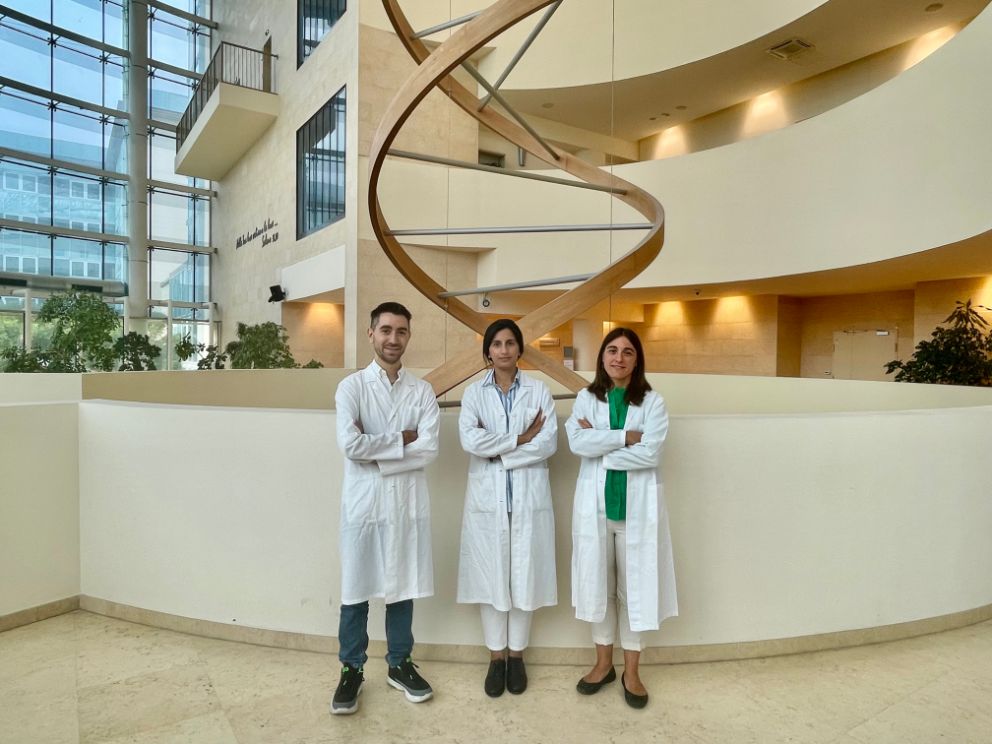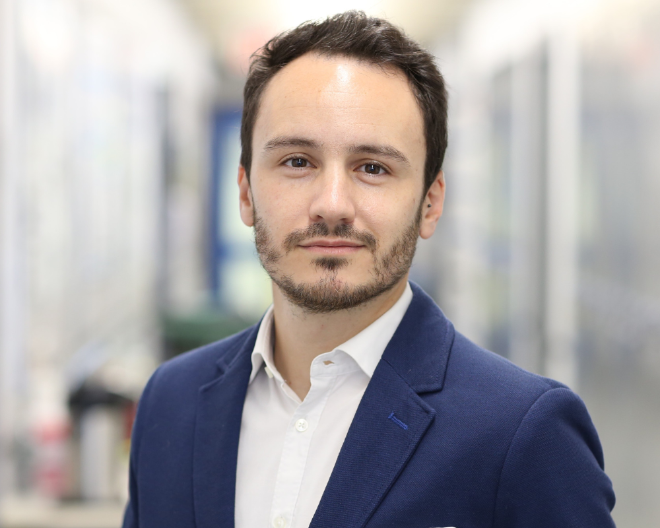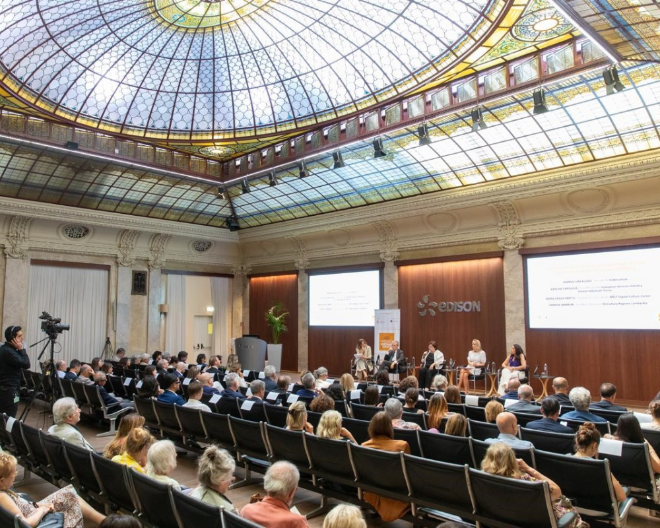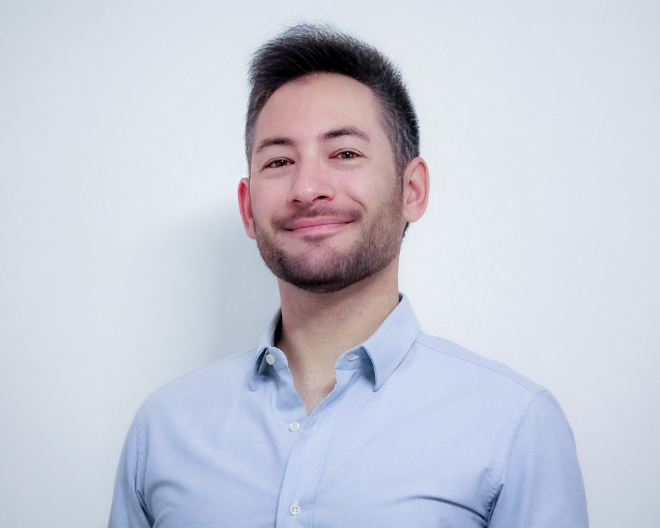Researchers Franco, Ferrari and Omer awarded three ERC Starting Grants

The European Research Council (ERC) has announced the winners of the Starting Grants 2024: among them are San Raffaele researchers Irene Franco, Project Leader at the Molecular Genetics of Renal Disorders, Attya Omer and Samuele Ferrari, post-doctoral fellow and project leader of the Novel Gene Therapy Strategies Unit.
The ERC Starting Grants provide support for talented early-career researchers who have already produced excellent supervised work, are ready to work independently and show potential to be research leaders. With their ERC Starting Grants, doctors Franco, Ferrari and Omer will be awarded up to €1.5 million each for a period of 5 years. This is a success built over time: Dr Omer and Dr Franco were previously Maria Skłodowska Curie European fellows at San Raffaele (moving from USA and from Sweden, respectively), while Dr Ferrari is a UniSR alumnus.
Last year researchers from Ospedale e San Raffaele University received 8 ERC grants. This tradition of excellence and competitiveness at the European level therefore continues in 2024. With these last three, San Raffaele reaches 31 ERC grants awarded since 2007, the year the European programme was born.

The “IDENTIKIT” project
Irene Franco’s project, called “IDENTIKIT: IDENTIfication and tracking of cancer-prone cells in KIdney Tubules”, focuses on cellular ageing and its impact on cancer, with a particular focus on DNA mutations that accumulate in cells. These mutations can transform normal cells into cancer cells, but little is known about what causes them. The project specifically looks at the kidney, where a rare population of cells has been identified with a much higher number of mutations than other surrounding cells. These mutations are common in kidney tumours and can be used as “markers” to identify cells with a high risk of becoming cancerous. The project aims to develop methods to isolate and study these cells to understand what factors increase the risk of cancer.
Dr Franco states:
ERC funding comes at a perfect time. A couple of years ago I started as the leader of a small research group, composed of two other researchers besides me. We have developed innovative techniques and obtained excellent results, and now we are ready to apply our methods on a larger scale. ERC funding gives each of us the security of a 5-year contract and a suitable research budget and the confidence boost we need to compete with the top experts in the field. I am optimistic and convinced that we will obtain relevant results. We are a small, young group but with knowledge and expertise across different disciplines and great creativity.

The “ResolVE-XAS” project
Samuele Ferrari’s project is called “ResolVE-XAS - Addressing Unknowns and Unmet Needs of VEXAS Syndrome by Multiomics Clonal Tracking and Targeted Gene Editing”.
Blood stem cells are special cells in our bone marrow that produce lifelong all the different types of blood cells our body needs to function properly. As we age, these cells can accumulate mutations in their DNA, creating an imbalance that can lead to diseases such as cancer and chronic inflammation. VEXAS syndrome, a recently discovered disease that affects elderly individuals by causing inflammation in several organs and many other severe manifestations, is poorly understood and current treatments are not very effective. Dr Ferrari’s research aims at studying the DNA and behavior of cells in patients with VEXAS syndrome, using modern gene-editing techniques to create experimental models. The goal is to better understand the disease and develop new ways to treat or prevent it.
Ferrari comments:
Obtaining an ERC Starting Grant is a great source of pride for me. At UniSR and OSR, first as a student and then as a researcher, I had the privilege of learning from the best mentors and receiving their trust. Now is the time, thanks to this prestigious recognition, to put into practice everything that has been passed on to me. It is a "new beginning", with the opportunity and the burden of developing new lines of research to understand certain pathologies and develop better therapies. I would like this result to be an inspiration to many young people in Italy who dream of becoming researchers but fear it would be impossible to achieve by staying in our country. My advice is: hang in there! With determination, sacrifice, the right choices, sincere collaboration with others, and also a bit of luck, nothing is impossible!

The “eHSCT” project
Attya Omer’s project is called “eHSCT – Harnessing Hematopoietic Stem Cell Breakthroughs to Pioneer Advances in Transplantation Therapies”.
Hematopoietic stem cell transplantation (HSCT) is a powerful treatment that can cure severe blood and immune system disorders by replacing damaged cells with healthy ones. However, it is typically reserved for the most critical cases due to several significant technical and clinical challenges. One of the main difficulties lies in collecting enough healthy stem cells, as the process of encouraging cells to move from the bone marrow into the bloodstream isn’t always effective. Even after successful collection and infusion, the healthy stem cells must migrate back to the bone marrow and start producing new blood cells, but many of them fail to do so, leading to less effective treatment outcomes. Additionally, before these new cells can take effect, existing cells are usually destroyed using chemotherapy. While necessary, this process can cause serious side effects by harming other organs.
Dr Omer’s project aims to address these challenges and make HSCT a safer, more effective option for a broader range of patients. The project focuses on enhancing stem cell behaviour by researching ways to improve their ability to find and successfully integrate into the bone marrow. Furthermore, it seeks to develop safer methods for depleting the bone marrow that do not rely on harmful chemotherapy, making the entire procedure both safer and more efficient.
Omer declares:
The ERC Starting Grant has the power to silence the imposter syndrome that so many of us face, and it's a personal milestone that gives me the confidence to believe in my place in the scientific community. Professionally, it is a catalyst to continue pushing the boundaries of my field and inspire others to do the same.
You might be interested in

A New Approach to Enhance Immunotherapy in Multiple Myeloma

An ERC Starting Grant assigned to Dr. Davide Folloni

BergamoScienza awarded at CULTURA + IMPRESA 2024

